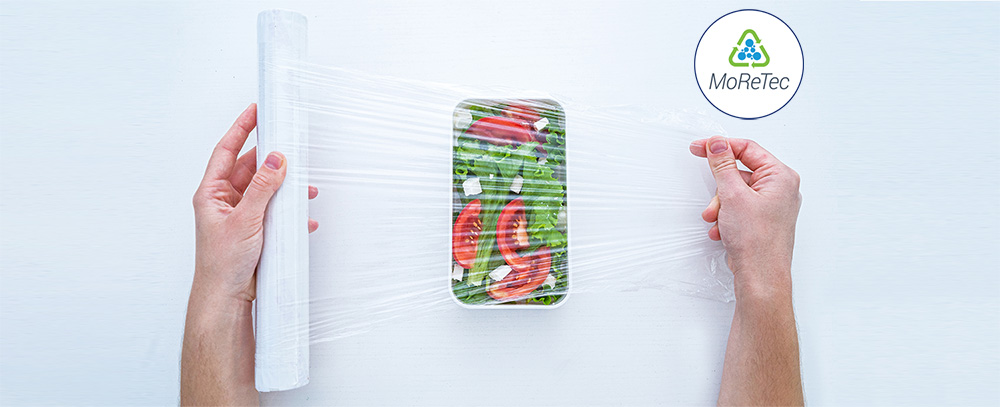A new molecular recycling technology is being developed by LyondellBasell, as part of a range of solutions devised by the company to reduce plastic waste and promote a circular economy for plastics.
LyondellBasell is developing a proprietary molecular recycling technology called MoReTec, which uses a catalyst in the pyrolysis process to improve the breakdown of plastic waste.
MoReTec technology has significant potential because of its lower energy use and more efficient chemical conversion process, which will allow increased commercial scale.
LyondellBasell has collaborated with Germany’s Karlsruhe Institute of Technology (KIT) to prove the efficiency of the MoReTec technology at laboratory scale. Potential catalyst systems were screened, and a variety of plastic waste streams were tested in 2019. This was followed by the commission of a small-scale pilot plant at LyondellBasell’s site in Ferrara, Italy, in July 2020.
LyondellBasell plans to develop optimum process conditions to make the MoReTec technology scalable to a semi-industrial proof-of-concept plant by 2021.
See MoReTec in action.
QCP
In another recycling collaboration, LyondellBasell and SUEZ have partnered in an industry-leading mechanical recycling facility called Quality Circular Polymers (QCP). Located in Sittard-Geleen, the Netherlands, QCP uses mechanical recycling to transform post-consumer plastic waste into high-quality polymers that can be used to make new products.
The QCP plant is capable of converting consumer waste into 35,000 tonnes of recycled polypropylene (r-PP) and recycled high-density polyethylene (r-HDPE) annually, with an objective of 50,000 tonnes by 2021.
When multinational consumer goods company Henkel set out to improve the packaging of their laundry detergent Persil 4 in1 DISCS, Greiner Packaging collaborated with QCP to develop a solution that used less conventional plastic and more recycled content, reducing CO2 emissions and plastic waste.
The newly designed cardboard-plastic combination features a plastic container made with 50% r-PP from QCP and a cardboard sleeve made with 92% recycled content. Thanks to its patented tear-off system, the cardboard wrap and the plastic container can be easily separated and recycled.
Circulen
LyondellBasell has also developed a range of polymers from renewable raw materials such as such as cooking and vegetable oil waste.
The Circulen and Circulen Plus range of polymers has been created in collaboration with leading renewable raw material supplier Neste. The polymers have the benefit of:
- delivering the same high-quality properties as virgin plastics;
- offering a variety of polypropylene (PP) and low-density polyethylene (LDPE) grades derived from renewable raw materials, with a lower CO2 footprint, and;
- certified sustainable content for both a mass balance approach or measurable carbon-14 content
View the Circulen video.
LyondellBasell
LyondellBasell is one of the largest plastics, chemicals and refining companies in the world. It is the sole manufacturer of polypropylene in Australia, with manufacturing operations based in Geelong, Victoria.
LyondellBasell Australia has a strong program of developing materials that are stiffer and have lower viscosity. This allows customers down-gauge, reduce the content of plastic in packaging and manufacture with a lower energy consumption per part.
LyondellBasell Australia provides technical expertise to assist customers to create reusable solutions.
Leveraging its global sustainability initiatives, LyondellBasell Australia can supply the polymers based upon renewable feedstock and is actively working with waste management companies and other stakeholders to develop Australian sovereign molecular and mechanical recycling solutions.
LyondellBasell Australia is a member of Chemistry Australia’s initiative, Plastics Stewardship Australia.
Plastics Stewardship Australia continues to work with communities, industry and government to develop solutions for the complex challenges associated with managing Australia’s waste.

